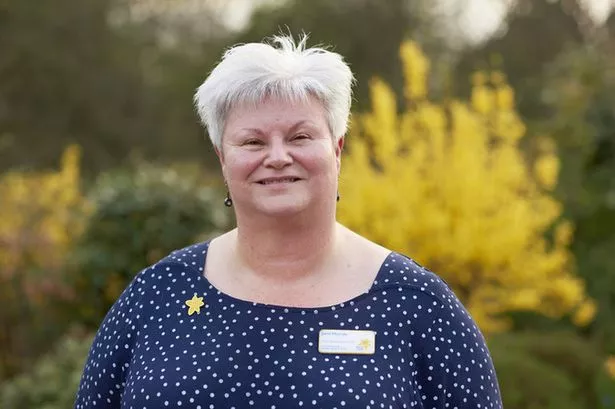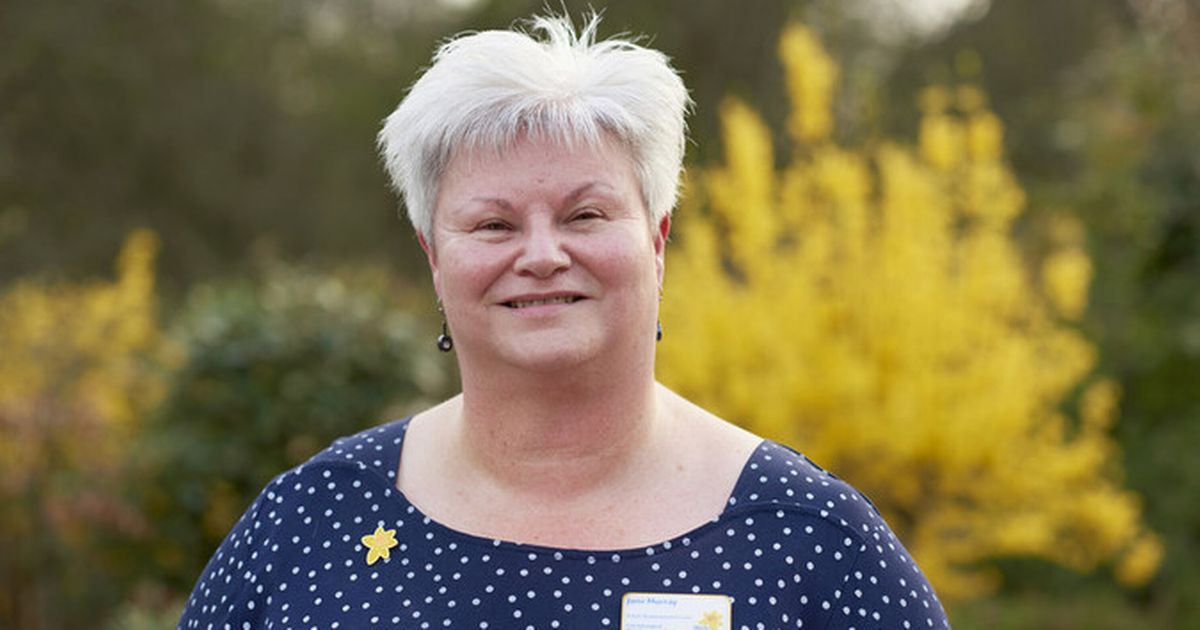Jane Murray is a bereavement counsellor at Marie Curie and has worked with people at the end of their lives for 25 years Jane Murray(Image: Marie Curie)
Jane Murray(Image: Marie Curie)
It can be difficult to come to terms with a terminal diagnosis, especially if the illness has been diagnosed late or symptoms have been previously missed. Jane Murray, a bereavement counsellor at Marie Curie – the UK’s leading end-of-life charity – shares what she’s learned about helping people understand and come to terms with a terminal illness diagnosis.
Working at Marie Curie Hospice West Midlands, Jane has 25 years’ experience supporting people at the end of their life and helping patients and their families deal with grief.
Asked which terminal illnesses may be typically misdiagnosed, Jane said: “We see this often with bowel cancer, as symptoms can be aggressive when diagnosed, but often are put down to poor diet, or other conditions like irritable bowel syndrome or Coeliac disease.
“Another terminal illness we see this occur with is cervical cancer. Often, women who go on to be diagnosed with cervical cancer may have initially been told that their symptoms were hormonal, especially younger people.”
Jane said some feelings were common when given a delayed diagnosis, adding: “Rightly so, many people experience anger following a diagnosis. A lot of people ask ‘why me?’, ‘why now?’ or ‘why am I so unlucky?’ and quite often will reflect on things that could have been done differently, like getting a doctor’s appointment sooner, or pushing for a second opinion.”
How can you come to terms with a terminal diagnosis?
Jane said: “During my sessions with patients, I try to get them to refocus and steer them to the here and now. Ask yourself, what is important to you at this moment in time and what do you want to achieve? The prevailing anger or negative emotions around a diagnosis shouldn’t stop the quality of your life for the remaining time you have left.
“In life, we don’t know what the future holds, but those with a terminal illness do – they are still living their lives, albeit differently, so now is a time to reflect on any unfinished business. Quite often, in the remaining months or weeks of a person’s life, a level of acceptance is reached.”
What about the loved ones of somebody who is terminally ill?
Jane said: “While the terminally ill person may have accepted their situation, frequently their family and friends cannot. We find that loved ones might express their pent-up anger or emotions towards medical professionals as a way of being heard and having a sense of control over a difficult situation.
“Though it’s important to let out emotions, loved ones holding on to anger may risk putting their grieving process on hold. Try to consider that you will never know whether having treatment sooner or receiving an earlier diagnosis would have made a difference, so letting go of the ‘what ifs’ and focusing on the ‘what now’ instead may help make circumstances easier to accept. Everyone’s experience of navigating terminal illness is different and if you are struggling to cope, do seek further help.”
If you or anyone you know has any questions or needs to speak to someone, you can call the Marie Curie Support Line on 0800 090 2309 for free between 8am to 6pm Monday to Friday, and 10am to 4pm at the weekend.
The support line can provide practical or clinical information if you’re living with or caring for someone who has a terminal illness.

